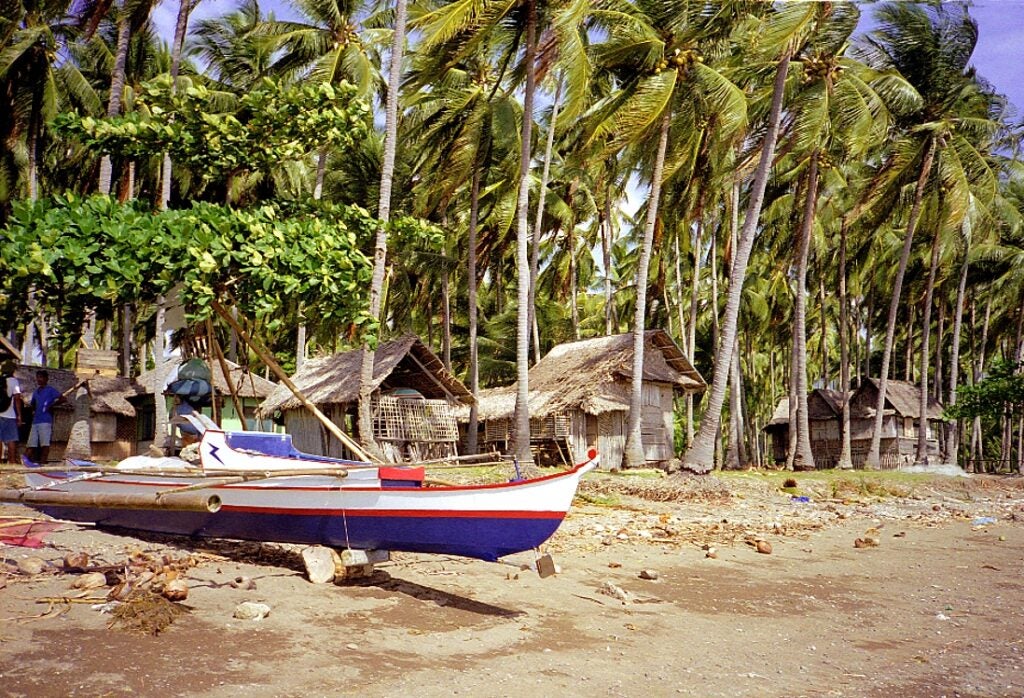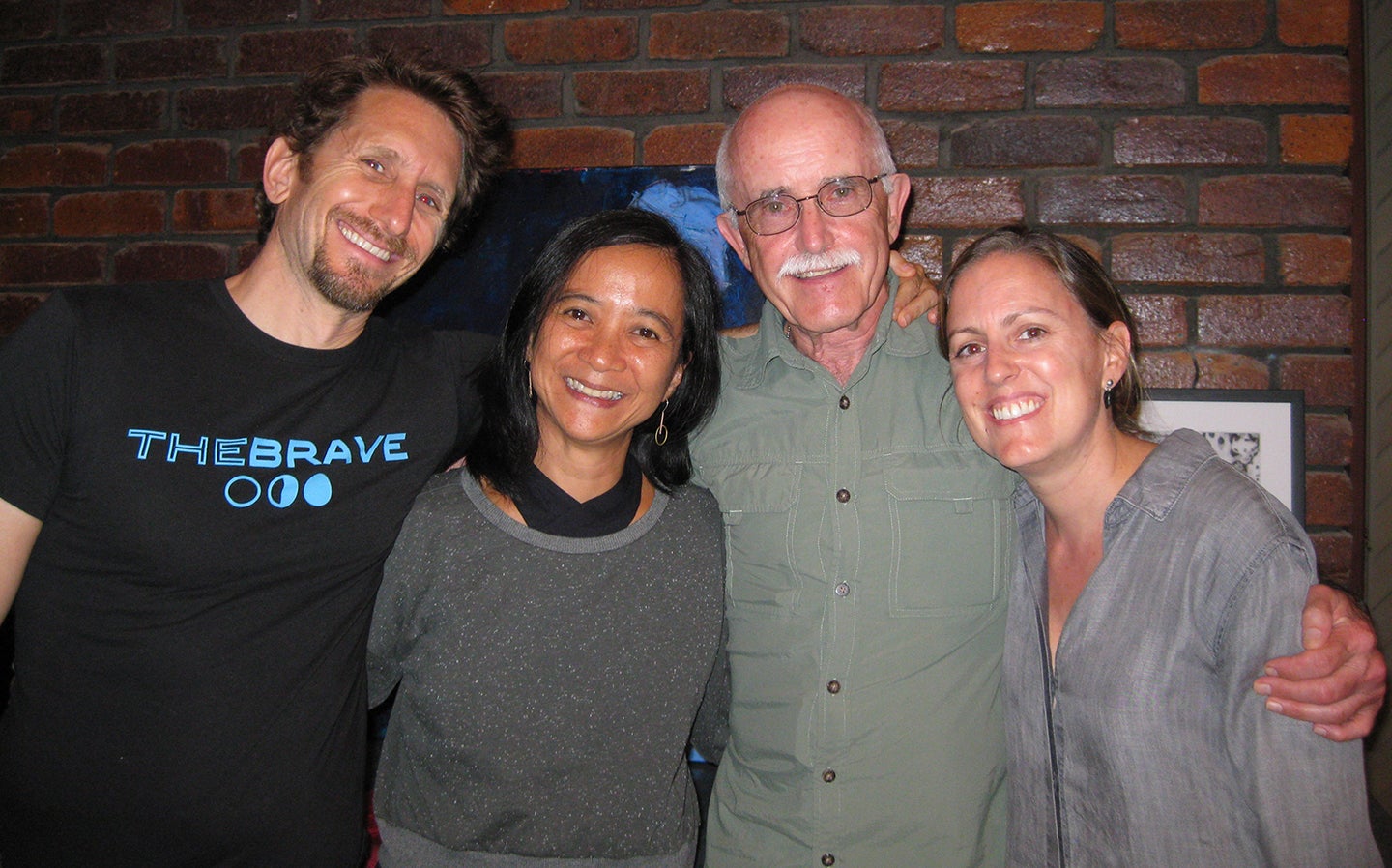KINGSTON, R.I. – August 1, 2022 – For Richard Pollnac, the focus has always been on people. This University of Rhode Island professor emeritus has spent his career studying the cultural impact on people living near bodies of water. An anthropologist by training, he began his career at URI in the Department of Sociology and Anthropology and was also faculty in the Department of Marine Affairs, the first program of its kind in the world. Today, his work as a faculty mentor has influenced students who are carrying his inspiration forward in work around the world.

For decades, Pollnac has taught students to consider the human dimension of the oceans in their work. He’s researched coastal peoples in all regions of the world – the U.S., Africa, the Middle East, Central and South America, the Pacific Islands and Southeast Asia – focusing on community resilience, vulnerability and the socioeconomic impacts of climate change. His focus on the human factor in marine and coastal ecosystems has now come full circle, as one of his former students launched a comprehensive study of the subject, the first of its kind – and not only invited his former professor to join in, but flew him to Australia to be part of it.
Joshua Cinner ’00 (M.A.) led the recently published study; he’s now a Distinguished Professor and Social Science Research Leader at the ARC Centre of Excellence for Coral Reef Studies at James Cook University in Australia. The paper found that tropical regions are expected to suffer losses in fisheries and agriculture as the effects of climate change are increasingly felt. Recently published in Nature Communications, the paper includes the research of Amy Diedrich (Ph.D. ’06), an environmental social scientist and Associate Professor at JCU.
Diedrich says, “It was great to be able to work with Richard again. I had a great experience with the Marine Affairs program at URI and working with Richard who was a huge inspiration. I applied to URI specifically to work with him. The degree set me up well for a career in environmental social science and gave me the basic knowledge and skills to be able to work across the natural and social marine sciences.”
The project involved multiple marine affairs specialists who had worked with Pollnac and been trained in his methods. In 2017, they all met to pool their data, meeting on Magnetic Island, off the east coast of Australia. “It’s a beautiful place to work and think and to pull data together,” says Pollnac. The resulting study is unique in the number of sites covered, the amount of data and complexity of research, as well as the number of marine affairs specialists who joined from around the world, including Australia, Austria, Canada, China, France, Spain, Madagascar, Netherlands, Papua New Guinea, and Tanzania. From that point, 28 researchers began to investigate the impacts of climate change on fisheries and agriculture for coastal communities across the Indo-Pacific region. Many had been conducting their own analyses of farming and fishing, but this was the first time that existing data has been synthesized. As the data coalesced, a strong picture formed, pointing to food security vulnerability for the surveyed communities.
According to their findings, climate change will profoundly affect fisheries and agriculture. By 2050, potential losses to fisheries will be up to 32% in some locations, and two-thirds of the communities studied could experience potential losses to fisheries and agriculture simultaneously. In total, they surveyed 3,000 households from 72 villages in 5 countries: Tanzania, Madagascar, Indonesia, Papua New Guinea and the Philippines.
“Climate change mitigation – reducing greenhouse gas emissions – could reduce the proportion of places facing that double burden by half,” says Cinner. “It really does show how much the lives of very many ordinary people hinge on decisions they have no control over and highlights the moral responsibilities that decision makers have toward them.”
The paper’s unified methodology, rare in the social sciences, let its authors look at patterns emerging at large scale. Taking the macro view, they were able to get a better sense of climate change’s impact on the micro, and individual, level.
Pollnac’s focus on the people impacted by climate and sea change continues, as he studies the impacts of environmental and climate change on fishing communities in Puerto Rico and the Virgin Islands with Tarsila Seara (Ph.D. ’14), associate professor and marine affairs program coordinator at the University of New Haven, and fishing communities in South America with Nikita Gaibor (Ph.D. ’16), project coordinator of the Public Institute of Aquaculture and Fisheries Research in Ecuador.
Pollnac could not be more thrilled to see the success of his former students. “We produced some excellent students in Marine Affairs,” he reflects. “I always wanted them to be better than me and they are. Their success reflects well on the University.”
Pollnac is professor emeritus in the Marine Affairs Department at the University of Rhode Island and affiliate professor in the School of Marine and Environmental Affairs at the University of Washington in Seattle.

